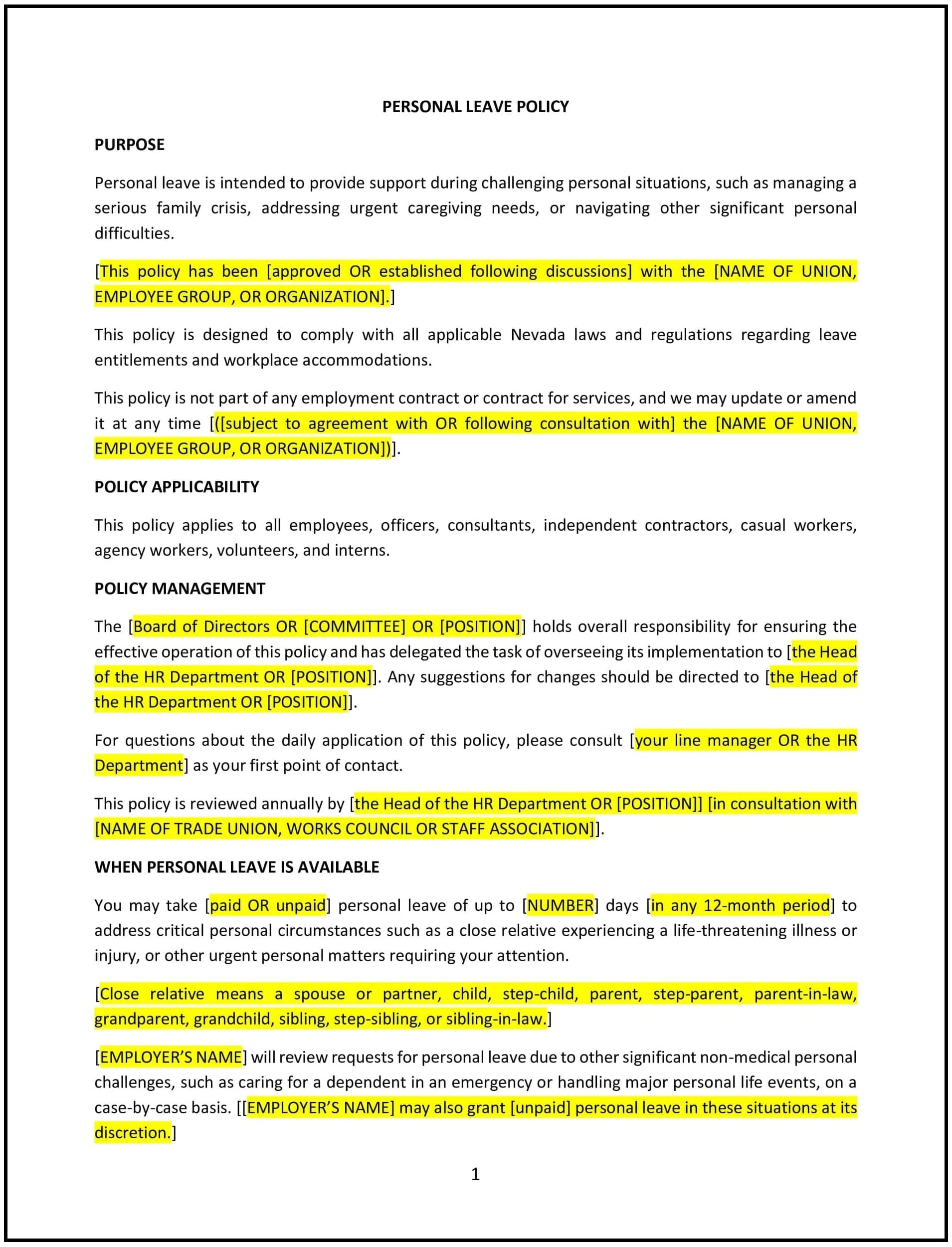Got contracts to review? While you're here for policies, let Cobrief make contract review effortless—start your free review now.

Customize this template for free
Personal leave policy (Nevada)
This personal leave policy is designed to help Nevada businesses provide employees with a clear framework for requesting and taking personal leave. It outlines eligibility, procedures, and conditions for taking leave for personal reasons unrelated to other designated leave types, ensuring consistency and fairness across the organization.
By adopting this policy, businesses can accommodate employee needs while maintaining operational efficiency and compliance with Nevada labor laws.
How to use this personal leave policy (Nevada)
- Define eligibility: Specify which employees are eligible for personal leave, such as full-time, part-time, or temporary employees, and outline any length-of-service requirements.
- Clarify leave duration: Establish the maximum length of personal leave allowed, whether it is paid, unpaid, or a combination of both.
- Address notification requirements: Require employees to submit a formal leave request in advance, specifying the reason and expected duration of the leave.
- Specify approval process: Outline the steps for managers or HR to evaluate and approve personal leave requests based on operational needs and fairness.
- Include job protection guidelines: Address whether job protection is provided during personal leave and under what conditions employees may return to their roles.
- Coordinate benefits: Clarify how benefits such as health insurance or retirement contributions are handled during the leave period.
- Prohibit misuse: Emphasize that personal leave must not be used for other types of leave, such as vacation or medical leave, unless explicitly approved.
- Provide reentry procedures: Detail the steps employees must follow to return to work after completing their leave, including notifying their manager and submitting any required documentation.
Benefits of using this personal leave policy (Nevada)
This policy provides several benefits for Nevada businesses:
- Promotes fairness: Establishes consistent guidelines for handling personal leave requests across the organization.
- Accommodates employee needs: Offers flexibility for employees to manage personal matters without undue stress.
- Enhances transparency: Provides clear expectations for employees and managers regarding the personal leave process.
- Reduces absenteeism: Encourages employees to request personal leave responsibly, reducing unplanned absences.
- Supports employee retention: Demonstrates a commitment to employee well-being, fostering loyalty and trust.
Tips for using this personal leave policy (Nevada)
- Communicate the policy: Share the policy with employees during onboarding and make it easily accessible through internal communication channels.
- Encourage timely requests: Remind employees to submit leave requests as early as possible to allow for adequate planning.
- Train managers: Provide training for managers to handle personal leave requests consistently and fairly.
- Document leave decisions: Maintain detailed records of leave requests, approvals, and denials to ensure compliance and transparency.
- Review regularly: Update the policy as needed to reflect changes in Nevada labor laws or company practices.